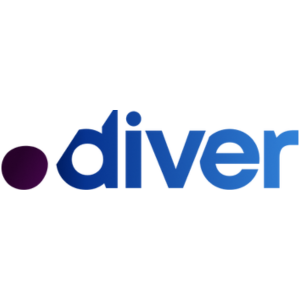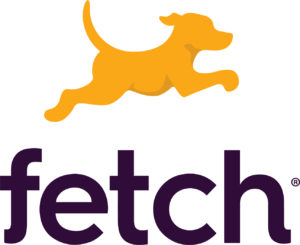MarTech Implementation, Integration, & Optimization // Brandi Starr & Mike Geller — Tegrita
- Part 1MarTech as the revenue engine
- Part 2Strategically using MarTech audits // Brandi Starr & Mike Geller — Tegrita
- Part 3Identifying Gaps & Overap in your MarTech stack // Brandi Starr & Mike Geller — Tegrita
- Part 4Choosing the right MarTech functionality // Brandi Starr & Mike Geller — Tegrita
- Part 5 MarTech Implementation, Integration, & Optimization // Brandi Starr & Mike Geller — Tegrita
Show Notes
Quotes
-
“The strategy should start before you make the purchase and then it should evolve to go a bit deeper. When you’re looking to implement, you need to have a strategy for how it fits into your stack and into your overall marketing strategy, who is going to own it, what purpose is it going to solve, and through developing that strategy that is where you develop an implementation plan, integration plan, and long-term optimization plan so once you’re up and running, you don’t just forget about these things and let them continue to operate as is.” - Brandi“There’s a leadership component here where somebody from the top needs to know where somebody at the top needs to know what the heck is going on. That’s a rarity today. You need to understand not only what you’re trying to accomplish and why you’re buying a specific martech tool. You also need to have a plan to not only understand who is going to do the implementation and also who is going to be responsible for the ongoing management.” - Ben “You have to have clear ownership from the beginning. Who is going to own the platform and everyone needs to know that as well so that when it comes to making changes and requests, that can go to the individual or group that owns the platform.” - Mike“Oftentimes what we see in implementation is, people believe their day jobs do the implementation and then go back to their day jobs again forgetting about the technology thinking that someone is left as the steward of it and that’s not the case. Technology needs people and it doesn’t really work without it.” - Mike “Technology is there to help you make decisions faster but if you do not provide direction, the technology is not going to get you anywhere. It goes back to strategy, having a plan for the technology and who is going to do the implementation. These are things you need to figure out.” - Mike “You brought up an interesting point which is somebody has to be responsible for the technology. But the technologies are going to change and evolve over time so fine-tuning your martech stack and going through the optimization process is something that continues to add value.” - Ben“It’s critical to maintain and optimize the tools on your martech stack. It involves doing regular health checks, validating that the technology is performing as designed, and making changes and tweaks along the way.” - Mike“Business isn’t static. When we make the decision to invest in a technology and configure the technology to do something specific, it’s usually based on specific decisions made by the business at that point in time. But then sometimes, six months later, something like a pandemic could happen or it goes away. The businesses adapt.” - Mike “The technology doesn’t automatically change or at least not yet. So somebody needs to analyze whether or not the tech stack makes sense and it doesn’t necessarily mean that everyday someone has to do this.” - Mike “For a company whose sales cycle is 30 days, typically they have a much higher volume of things happening so they’re gleaning a lot of insight from the technology a lot faster than say, a company who has a 24-month sales cycle.” - Brandi“Generally, after you have implemented something, you need at least 2-3 period of data that you can analyze to see how well things are working. For some people that may be after a quarter, for some people that may be a year or longer. But in general, I tend to look at it annually when i think of optimization and looking at things holistically.” - Brandi“First off, somebody needs to check that it is working, making sure the green light is on. That’s an ongoing project and could be super labor intensive. A lot of the times when it breaks, those things have bubbled up. There needs to be a point where someone says something and raises their hand.” - Ben “Then there are the 2-3 business cycles where you go back and re-evaluate the martech strategy and the stack building. It’s something that you need to be able to reiterate on over time.” - Ben “Tegrita’s focus is on marketing technology and marketing strategy. We have worked with a variety of clients over the years in different capacities. Everything from implementing marketing technology to doing some of the outsourcing of the supporting work as well as help them figure out what these use cases are and how to optimize.” - Brandi“Through all of our experiential learnings, we have seen a lot of consistent challenges within marketing teams in being able to leverage technology as a revenue engine. So the most exciting thing that I can share that we are working on is that, myself and Tegrita’s CRO are releasing a book called, CMO to CRO: The Revenue Takeover by the Next Generation Executive. It’s really targeted at CMOs and anyone that is a marketing leader who wants to understand how to best organize their marketing team to focus on that end-to-end customer experience, to leverage marketing technology in order to actually be a revenue engine and see some return and collaboration between all of the different groups.” - Brandi
- Part 1MarTech as the revenue engine
- Part 2Strategically using MarTech audits // Brandi Starr & Mike Geller — Tegrita
- Part 3Identifying Gaps & Overap in your MarTech stack // Brandi Starr & Mike Geller — Tegrita
- Part 4Choosing the right MarTech functionality // Brandi Starr & Mike Geller — Tegrita
- Part 5 MarTech Implementation, Integration, & Optimization // Brandi Starr & Mike Geller — Tegrita
Up Next:
-
Part 1MarTech as the revenue engine
This week we're talking specifics about how to use MarTech tools and strategies to put more money in your business's pockets. Joining us today are Brandi Starr and Mike Geller, the COO and the President and CTO at Tegrita, which is a full service MarTech consulting firm that enables digital marketing strategy with technology. In part 1 of our conversation, we discuss MarTech as the revenue engine.
Play Podcast -
Part 2Strategically using MarTech audits // Brandi Starr & Mike Geller — Tegrita
We continue our conversation about using MarTech tools and strategies to put more money in your business's pockets. Joining us again today are Brandi Starr and Mike Geller, the COO and President and CTO of Tegrita, which is a full service MarTech consulting firm that enables digital marketing strategy with technology. In Part 2 of our conversation, we discuss strategically using MarTech audits.
Play Podcast -
Part 3Identifying Gaps & Overap in your MarTech stack // Brandi Starr & Mike Geller — Tegrita
Today we're going to talk about using MarTech tools and strategies to put more money in your business's pockets. Joining us today is Brandi Starr and Mike Geller, who are respectively, the COO and President and CTO of Tegrita, which is a full service MarTech consulting firm that enables digital marketing strategy with technology. In part 3 of our conversation, we discuss identifying gaps and overlap in your MarTech stack.
Play Podcast -
Part 4Choosing the right MarTech functionality // Brandi Starr & Mike Geller — Tegrita
Today we're going to talk about using MarTech tools and strategies to put more money in your business's pockets. Joining us today is Brandi Starr and Mike Geller, who are respectively, the COO and President and CTO of Tegrita, which is a full service MarTech consulting firm that enables digital marketing strategy with technology. In part 4 of our conversation, we discuss choosing the right MarTech functionality.
Play Podcast -
Part 5MarTech Implementation, Integration, & Optimization // Brandi Starr & Mike Geller — Tegrita
Today’s episode talks about the process of implementation for your martech tools, how to create a focal point for your disparate tools to build a seamless integration, and how to optimize the martech stack you’ve built and make it function like a well-oiled machine. This is our last episode for Revenue Growth Week with our special guests from Tegrita.











